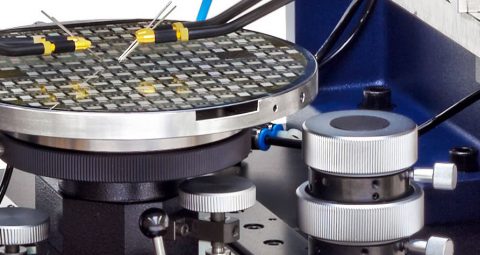Dr. Jacob Rosenstein is an Assistant Professor in the School of Engineering at Brown University where he is currently applying his expertise in IC technology to the development of new analog circuitry capable of measuring the subtle current fluctuations within so-called nanopores. These fluctuations allow for the rapid analysis of biological materials, such as DNA strands, at the molecular level. As part of this, he and his colleagues are addressing the challenge of reducing the noise generated by electrochemical processes in the nanopore current flow.
The challenge to Dr. Rosenstein and his colleagues is to develop microcircuits capable of measuring this nanolevel current in a manner that yields both speed and accuracy. The principal problem is one of noise reduction. The ion flow through the nanopores reflects the stochastic nature of electrochemical processes, which introduce random noise along with pertinent information. It thus becomes imperative to develop low-noise, current-mode analog circuitry at the front end of a microelectronic system that provides the best possible signal-to-noise ratio.
Dr. Rosenstein’s lab includes a FormFactor EPS150FA probe system, which permits his research team to perform real-time measurements and modifications on CMOS circuits when they arrive from the fab. It includes high-resolution probes that allow manual positioning onto exposed electrodes designed to interface with electrochemical solutions when the device is placed into operation.
The EPS150FA system flexibility lets the team mount a laser cutter to perform micromachining operations such as patterning the fluid channels that route electrochemical solutions or modifying the metal layers that define the wiring. With this diversity of applications, the EPS150FA rapid adaptation has been major asset in Dr. Rosenstein’s lab. High-quality microscope optics, precise probe positioners and easily configurable hardware have all made a contribution.
To see how the EPS150FA is being used elsewhere in university labs, check out how Dr. Cortez at Union College uses the probe system as a learning tool and research instrument. You can also read other case studies here.
